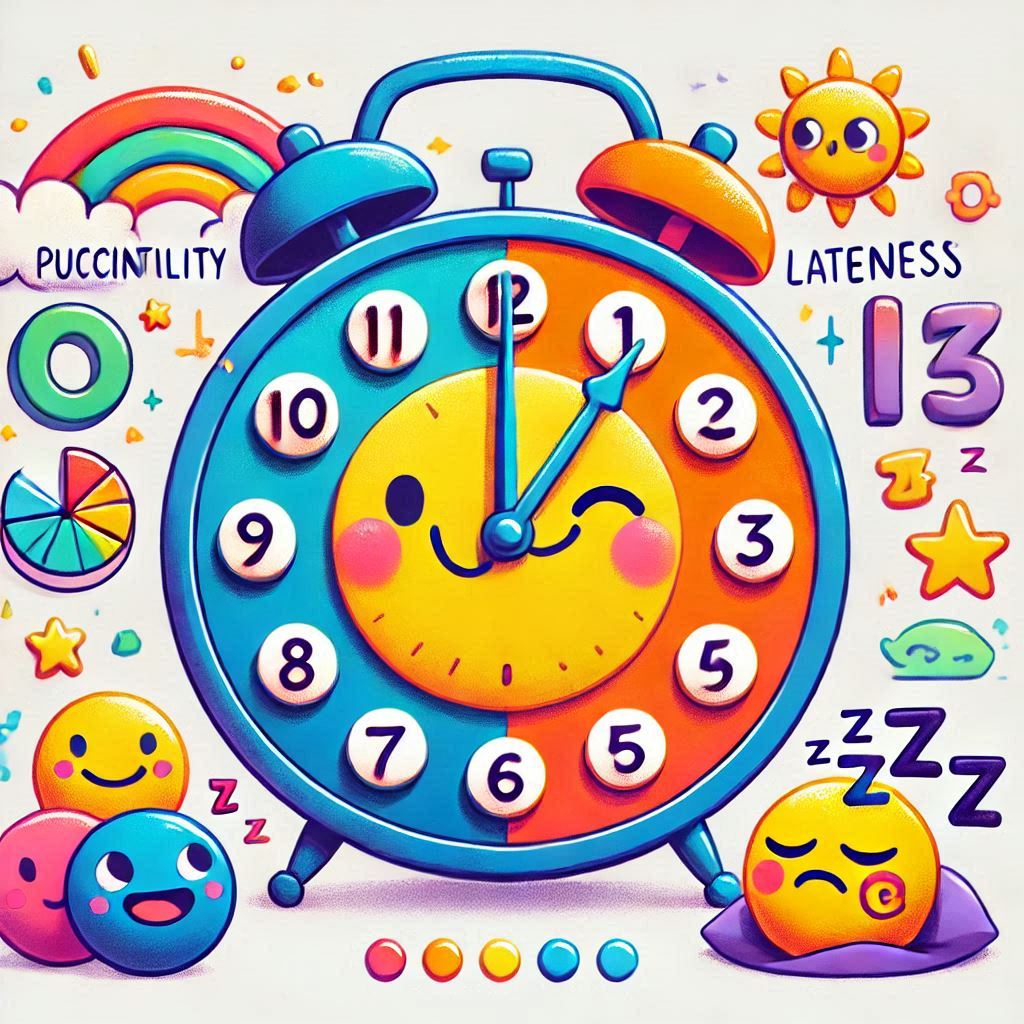Habit of the week: Punctuality
Punctuality means being on time for your commitments, whether it’s arriving at school, completing tasks, or showing up for family events. It shows respect for others’ time and helps in building trust.
Disclaimer: The names mentioned in these stories are used purely for fictional and illustrative purposes. Any resemblance to actual persons, living or deceased, is purely coincidental.
Ravi at school:
Ravi was always the last to arrive at school.
His teachers often reminded him about the importance of being on time, but he thought, “It’s just a few minutes late, what’s the big deal?”
One day, the class had an important surprise quiz.
By the time Ravi arrived, the quiz had already begun, and he missed the first few questions.
His friends had started early and were able to finish with better grades.

Ravi realized that those few minutes of lateness could make a big difference in his learning.
From that day, he set an alarm earlier and started arriving to class on time, realizing how much more he could achieve by being punctual.
Ananya at home:
At home, Ananya’s family had a tradition of dining together every night.
However, Ananya would always delay joining dinner, caught up with TV shows or phone games.
One evening, her grandmother mentioned how much it meant to the family to share those few moments together.

They talked, laughed, and bonded over dinner, something that Ananya was missing by being late.
Realizing the impact of her delay, Ananya promised herself to respect the family’s time and be punctual for meals.
Hope you enjoyed these stories that share the values of being punctual. Now lets dive into specific action points which you can implement to build punctuality as a habit.

Action Points:
- Set an alarm or reminder to ensure you’re always on time for school or meetings.
- Understand that being punctual shows respect for others and their time.
- Practice arriving 5 minutes earlier than needed—it helps in avoiding last-minute stress!
Now It’s time to close with a joke:

Why was the clock always invited to parties?
ThE TIME
Because it was great at keeping time and never missed a second!





